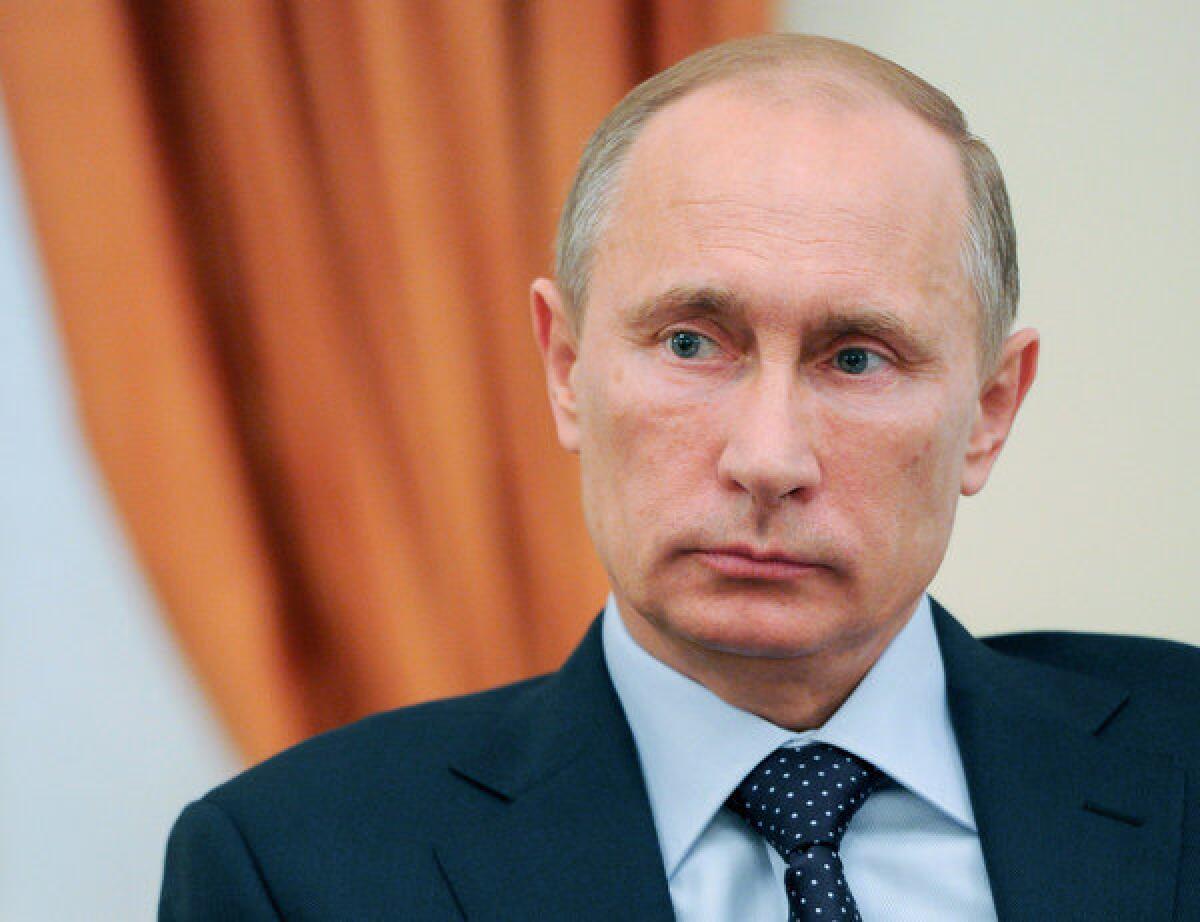Russia not convinced by U.S. claims of Syrian chemical weapons use

- Share via
MOSCOW – Russia on Friday said it was not persuaded by U.S. assertions that Syria has used chemical weapons in the country’s civil war and called the decision to send arms to some rebel groups unhelpful.
Yuri Ushakov, an aide to Russian President Vladimir Putin, said information provided by the United States to back up its claims “doesn’t look convincing to us.”
Russia and the U.S. have been trying to persuade the Syrian government and opposition forces to take part in peace talks in Geneva.
Thursday’s White House announcement “will certainly not help the preparations for the international conference, if the United States really decides to in fact render larger-scale assistance to the rebels,” Ushakov told reporters in Moscow.
But he stopped short of saying that Russia would respond by delivering to Syria a promised advanced air defense system.
“We are not competing over Syria, are we?” he said in response to a question about an as-yet unfulfilled contract to supply Russian S-300 missiles to Syria. “On the contrary, we are trying to find a constructive resolution for this most important issue.”
Other Russian officials were not so restrained.
“The information about the use of chemical weapons by Assad is fabricated in the same place as the lie about [former Iraqi leader Saddam] Hussein possessing weapons of mass destruction,” tweeted Alexei Pushkov, chairman of the foreign affairs committee in the lower house of parliament. “Obama is walking down the same path as Bush.”
Russia will insist on a thorough investigation of the facts by the United Nations, Mikhail Margelov, Pushkov’s counterpart in parliament’s upper house, told the RIA-Novosti news agency.
Ushakov said the issue would be discussed at a meeting next week between Putin and Obama at a Group of 8 world leaders gathering in Northern Ireland.
U.S. officials have pressed Russia along with Iran to curtail weapons shipments to Syria, which they fear encourage President Bashar Assad to believe that he can defeat the rebellion militarily.
Until now, the Obama administration has chiefly provided humanitarian supplies and nonlethal aid, such as communications gear, to Syrian rebel factions.
The decision to lift the U.S. ban on supplying arms to the rebels came as Syria’s government has been making gains on the battlefield, including the recent capture of the strategic city of Qusair, near the Lebanese border.
The White House said Thursday that Syria had crossed a “red line” by using chemical weapons.
A two-month investigation by U.S. intelligence agencies found that sarin, a potent nerve gas, was used in attacks this year near the Syrian capital, Damascus, and in the northern city of Aleppo, Deputy National Security Advisor Ben Rhodes told reporters in Washington. He said the administration intends to consult with the United Nations and allies, as well as Congress, before choosing how exactly to respond.
Fyodor Lukyanov, editor-in-chief of the monthly Russia in Global Affairs journal, warned of a possible escalation in the conflict if Washington does supply weapons to some rebel groups.
“Putin has recently implied that the Russian contract to supply S-300 anti-aircraft missile systems to Syria is valid and may be implemented at any time soon, which will make it basically impossible for the West to repeat the Libyan scenario and rely on air power to suppress Assad’s army,” Lukyanov said.
“This will lead to further escalation of the conflict, significantly increasing casualties on both sides and among the civilian population, but with no chance for either side to achieve a military victory.”
[For the Record, 11:04 a.m. PST: An earlier version of this online article misquoted Russian official Yuri Ushakov as saying, “On the contrary, we are trying to find a constructive resolution for this issue.” The correct quote is, “On the contrary, we are trying to find a constructive resolution for this most important issue.”]
ALSO:
High turnout reported as Iran picks new president
Pope, archbishop of Canterbury meet, speak of unity
U.N. says Syria death toll has likely surpassed 100,000
More to Read
Sign up for Essential California
The most important California stories and recommendations in your inbox every morning.
You may occasionally receive promotional content from the Los Angeles Times.










